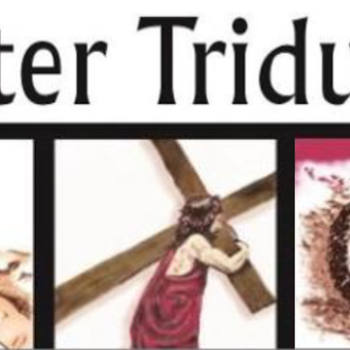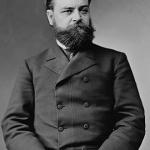
Abortion does not stand apart among sins that need challenging in the theater of American politics. Catholics have fortnights and novenas and prayer vigils and letter-writing campaigns for unborn babies. We ought to do the same for a number of other issues. As a practical matter, concern about abortion, ought to go with concern about racism, health care, care for the earth, etc. All of these lead to an increased number of abortions. In fact, if America doesn’t change its stand on global warming, direct abortion soon will no longer be the main threat to life in the womb.
Before now my reasoning concerning abortion has been practical and political. A candidate may be right on abortion but wrong on, say, global warming. What will be the net effect on the number of abortions worldwide? Theoretically I still put abortion in a unique place. Quoting Pope John Paul II:
The one eliminated is a human being at the very beginning of life. No one more absolutely innocent could be imagined. In no way could this human being ever be considered an aggressor, much less an unjust aggressor! He or she is weak, defenseless, even to the point of lacking that minimal form of defense consisting in the poignant power of a newborn baby’s cries and tears. The unborn child is totally entrusted to the protection and care of the woman carrying him or her in the womb. (Evangelium Vitae #58)
Natural and biblical reasoning
The saint certainly describes well the special horror of abortion. I notice, though, a change from a previous teaching of the Church. Formerly the Church argued theologically. She said that abortion deprives a human being of any chance of going to heaven. Unbaptized innocents would go to Limbo, a place of merely natural happiness. But lately the Church has dropped the teaching about Limbo. She recognizes God’s freedom in bestowing grace even to unborn babies.
With the pope’s newer, more naturalistic, description of abortion’s evil, one might wonder whether other evils might at least come close. A woman is vulnerable to rape by a more powerful man. A man or woman may be denied employment because of color or sex. A disabled person experiences discrimination in a number of ways. All are relatively defenseless in the face of these evils.
Still, looking at abortion numbers, it’s hard to find an equivalent in suffering and death. Genocide or nuclear Armageddon, I suppose, would be equivalent. Two articles in Commonweal Magazine, however, introduced, or reintroduced, a different, more theological, way of thinking about things that are evil. They are:
“Treat the alien the Same” by Paul Moses (September 30) and
“The Gods of Nation & Blood” by Joseph S. Flipper (October 5).
The pope’s argument above relies on natural reasoning rather than on the Bible. It is not specifically theological or church-related. Moses’ and Flipper’s approaches are both biblical and centered on the essence of the Church. Flipper discusses the Nazi extermination campaign against the Jews and the Church’s response. Henri de Lubac provides the theology, which Flipper applies to contemporary America. Moses reviews Richard Elliott Friedman’s The Exodus: How It Happened and Why It Matters. The theology that derives from the Exodus experience includes monotheism and the “foundational” character of care for the stranger.
The vocation of the Church – from the article by Joseph S. Flipper
De Lubac was face with a virulent form of racism in Nazi Germany and the Vichy puppet government of France. He begins with God’s work in forming the Church. God “sought to heal the divisions among the human race caused by sin and to regather human beings into a true unity.” The Church is the means and sign of that unity. Therefore racism “is not merely a [natural] moral failure. It strikes at the foundation of Christian doctrine.”
De Lubac sees in Nazi racism both rejection of the God of the Bible and service to other gods. “Gods of Nation and Blood” is the title of the article. These gods could move into a space from which the true God had been evicted—a spiritual void. Flipper thinks the same process may be at work in the United States. “We should be alarmed,” he says, “not only at the physical violence racism provokes, but also at the signs of the re-animated gods of nation and blood.”
Flipper calls Steve Bannon the spokesman for “religious nationalism.” Bannon spoke of “saving the religious vision of the Christian West.” But it was an “ethno-nationalist vision” with only the trappings of Christianity. With his kind of leadership, white supremacist groups grew. Some in the Church initially reacted to the Charleston “Unite the Right” rally as merely political, a matter of opinion. Later many and diverse Catholic leaders, including Cardinal Daniel DiNardo and Archbishop Chaput, spoke forcefully against such ideologies.
Flipper concludes: “Theologically understood, racism is more than a sin. It constitutes a heresy that undermines the very identity of the church.” Its ideology and systemic exclusion threatens to co-opt Christianity. It “offers a powerful anti-Christian narrative about who we are as human beings while invoking Europe’s ‘Christian heritage.’”
The Israelite experience – from the article by Paul Moses
Moses places immigration on a level with abortion as matters of Christian concern. He bypasses the debate about intrinsic evils (e.g. abortion) vs. prudential judgment (e.g. immigration). For him the Israelite experience is decisive. This he recounts in reviewing Friedman’s book The Exodus: How It Happened and Why It Matters.
Friedman finds that there really was an exodus from Egypt. It consisted not of 2 million people wandering through a desert but of a group of Levites. The other tribes were in Israel all along. “The Levite exodus became all Israel’s story.” Monotheism developed from this union of the two groups. The god whom the settled Israelites worshiped was El or Elohim. This god became one with the god whom the Levites worshiped as Yahweh.
The Levites other great contribution, closely connected with the god they worshiped, concerned treatment of aliens. Scriptures that came from Levite sources command repeatedly: “fair treatment of aliens. Just, equal treatment of aliens. Foreigners. Outsiders.” “Because you were aliens in Egypt” (Exodus 22:20) “This is not found anywhere else in ancient Near Eastern law,” Friedman says. The command to “Love your neighbor as yourself,” found in both testaments, does not refer only to persons of one’s own country. This foundational Jewish-Christian ethic simply translates the command rooted in the Levite experience of being aliens.
Friedman concludes that “love of the alien is the beating heart of the Hebrew Bible.” True, Romans 13, as Attorney General Jeff Sessions says, commands us to obey the laws of government. But the Bible as a whole is no defender of any “zero tolerance” policy on illegal immigrants
Sins as evil as abortion
Flipper looked at what God was doing in forming the Church. God means the Church to be a sign and means of the unity of humanity. Moses looked at the experience of the Jewish People of God. Their foundational ethic was one of concern for the ones who are other, not us. In the Bible sins against the unity of humankind and against the alien in our midst seem to be of greatest concern.
That does not lessen the obligation the Church should feel to speak out on behalf of the unborn. But politically, in this country, it does complicate things a great deal. Because of the way the two main parties align on issues, the Church cannot say:
Let’s us concentrate on abortion and leave the other issues, like racism, health care, environment, poverty, etc. to others or to another time.
That is not just to neglect the other issues but actually to contribute to their defeat. The party that is right on abortion is wrong on many other issues central to the mission of the Church. And vice versa for the other party.
The Church has no choice but to faithfully pursue its entire mission. It will not do to favor one part of it over another. This leaves the success of any given part of the mission, in particular abortion, less certain, as far as political vision can determine. That disturbs many in the pro-life movement. But it leaves the entire mission more securely in the hands of God – which is where all success resides.
Image credit: The Gospel Coalition















